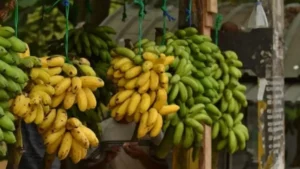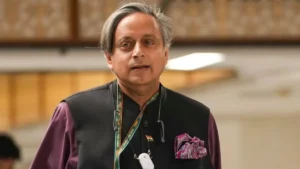On July 15, the Reserve Bank of India (RBI) and the Central Bank of UAE (CBUAE) signed two Memoranda of Understanding (MoUs) aimed at bolstering economic ties between the two nations. The MoUs focus on promoting the use of local currencies for cross-border transactions and interlinking their payment systems, including the Unified Payments Interface (UPI) with the Instant Payment Platform (IPP) of UAE.
MoU on Local Currency Settlement System (LCSS)
- The first MoU establishes a framework for the use of local currencies, namely the Indian rupee (INR) and the UAE Dirham (AED), for cross-border transactions.
- The Local Currency Settlement System (LCSS) will enable exporters and importers to invoice and pay in their respective domestic currencies, facilitating an INR-AED foreign exchange market.
- The use of local currencies optimizes transaction costs and settlement time for various transactions, including remittances from Indians residing in UAE.
- This move is expected to boost investments and remittances between the two countries, enhancing bilateral trade.
Key Fact: The LCSS covers all current account transactions and permitted capital account transactions, fostering seamless cross-border financial interactions.
MoU on Payments and Messaging Systems
- The second MoU focuses on cooperation between the central banks in linking their Fast Payment Systems (FPSs) – UPI of India with IPP of UAE.
- Additionally, the MoU includes the linkage of respective Card Switches (RuPay switch and UAESWITCH) and explores linking the payments messaging systems (SFMS) of India with the messaging system in UAE.
- This interlinking of payment systems will enable users in both countries to make fast, convenient, safe, and cost-effective cross-border funds transfers.
Key Fact: The linkage of Card Switches will allow mutual acceptance of domestic cards and processing of card transactions, facilitating seamless financial transactions between India and UAE.
The signing of these MoUs signifies a strategic effort by both countries to strengthen their economic and financial ties. These agreements are expected to enhance the ease of doing business, optimize transaction costs, and promote investments and remittances between India and UAE.
Important Fact:
- The MoUs were signed by the Governor of the Reserve Bank of India, Shaktikanta Das, and the Governor of the Central Bank of UAE, Khaled Mohamed Balama, in the presence of Prime Minister Narendra Modi and UAE President Sheikh Mohamed Bin Zayed Al Nahyan, underscoring the significance of the agreements in promoting bilateral cooperation and economic growth.




 Which Lake is known as the Jewel of Udai...
Which Lake is known as the Jewel of Udai...
 Which is the Largest Banana Producing St...
Which is the Largest Banana Producing St...
 Shashi Tharoor Conferred Honorary D.Litt...
Shashi Tharoor Conferred Honorary D.Litt...








